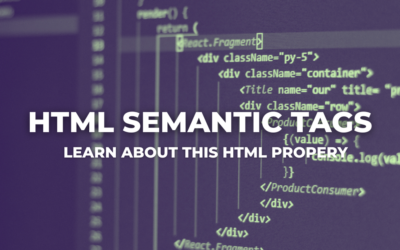It seems almost every day, I come across a new XHTML coding service, a company that will take your design and turn around XHTML/CSS in some short amount of time. There must be a burgeoning need for these, considering how many there are. Smashing Magazine recently did a rundown of a number of them, with a chart of prices vs. turnaround time. I can see where one might need to use one of these, for the sake of time or budget. But I wonder if they’re creating a situation where web designers don’t have to know as much as they’ve traditionally had to know. I’ve always thought that being a web designer was, at the very least, a job where you need to understand how to code html and know how your design will ultimately be delivered on the web.
In a somewhat tangential vein, Khoi Vinh posted a very interesting article recently on the topic of what a print designer needs to learn so that he or she can become a web designer. Aside from some more philosophical points, he sums it up by saying understanding HTML and CSS is crucial because :
such knowledge provides the means to begin experimenting, to begin understanding how a page is put together, how it is delivered to a browser, how it behaves and, crucially, how the designer’s intention maps to how it is used by real people.
This is fundamental to web design. It takes experience, time, research, and attention to detail. And that is one point of what Khoi is getting at, that a web designer has to be more than just concerned about the visual aspect of their design. Jonathan Hoefler pops up to point out that in some ways it’s always been like this, even in the print world:
Twenty years ago there were knuckleheads who brought comps to their offset printers, in which six point Bodoni was knocked out of a 60-line photograph, running across the gutter, and printing on newsprint. Most designers aren’t interested in browser compliance, but then most designers also don’t know the Tollenaar and Ernst formula for calculating dot gain on press. A lot of the details have always been boring.
Implicit in this statement is that a ‘good’ print designer should know these details. It’s not necessary to know the details to lay something out in Quark or Indesign, send it off to the printer, and get your piece back, but deep knowledge of the printing process will enable a print designer to be more creative and fully take advantage of what can be done.
So, back to the topic of XHTML coding services. Are these services fostering in an era where web designers don’t need to know as much about code? Can they just design a site, ship it off and get back the code? Will that become accepted and/or standard?




I agree to an extent Jay. For someone to be classed as a web designed they undoubtedly need to hold the skills and methods associated with it.
I think that these type of services are more useful for people who consider themselves an adequate designer in Photoshop and want a simple website – people will always be able to tell the difference between something quickly put together and a site that has had time and labour put into it.
These services can be of great benefit to web designers who can code XHTML/CSS themselves but need to save time, as long as they know the provider is a quality vendor.
The problem is when a print designer turned web designer uses these services but doesn’t understand anything about the actual process. However, the guys who know their stuff will be identifiable by their work.
id say its evolution in form of “more specialization”
the master photoshop designer does not need this pesky knowledge about
– css / semantic html in general
– browser specific css (and html and javascript *sigh*) problems
– all those web-thisAndThat things like websafe colors, most used fonts, best sizes of … etc.
he can work in his photoshop world, create cool looking pieces of design, uses the xhtml/css coding services and assuming it works, well then it works
for me its a real natural way the thing goes, lets take a big company, there is
the http://www.company-site.de – department
– the graphic designer (photoshop)
– clientside “designer”
– serverside “designer” (architect fits better i guess)
– and so on
so its no surprise these structures grow in the freelancer-world too
….
cite : people will always be able to tell the difference between something quickly put together and a site that has had time and labour put into it.
….thats just a question of money
I suspect that it saves very little time for people who truly know HTML and CSS.
I wonder how well the details such as typography, hover states, etc, come out and whether it would take longer to communicate those things to the firm and subsequently figure out what they have done if it changes, or isn’t exactly as you want it, than it would have taken to simply code it.
I can see these actually helping designers who know how to code, but don’t have the time- as setting up that initial structure is usually the biggest battle.
I also 100% believe that a working knowledge of the code is absolutely crucial to makng a good website.
Would you hire a graphic designer who didn’t know how different kinds of printers work? One who had no idea what a Pantone color was? So why would you allow someone to design your website who is uneducated about the limits and strengths of the web?
I don’t see what the big deal is to be honest. To use an analogy, consider if I had friends around and ordered dishes from the local restaurant, plated it nicely and presented it to my friends for dinner. My friends may or may not know that I had got someone else to cook the dinner, but what do they care – it still tastes good.
In addition, whether I can cook or not is no reflection on whether I did or didn’t buy a take out meal from a restaurant. I could be a 5-star chef who needs a quick meal, or perhaps wants to take a short cut.
So yes, whilst I agree you can’t really call yourself a web designer if you can’t cut your own designs (just like you can’t call yourself a chef if you can’t cook), I see no reason to be dismissive of web designers who do use the services. I may be reading too much between the lines, but the impression I got from the article was one of implied ‘elistist snobbery’ (*sniff* people who use these services should never call themselves web developers *sniff* 😛 )
well the dude is asking specifically:
“Are these services fostering in an era where web designers don’t need to know as much about code? Can they just design a site, ship it off and get back the code? Will that become accepted and/or standard?”
I wouldn’t call that “implied eliteist snobbery”, just general concern for where the industryis headed.
Fundamentally there is no issue with using a slicer service as far as I’m concerned. I’ve used them myself with pretty decent results. In the end though, it’s my knowledge of the web site building process and coding that give me the confidence to tackle almost any project.
Call it design snobbery or what you will, but I fundamentally believe that in order to be truly adept at your craft, you will need to know the in’s and out’s of it in as complete a fashion as you can. If you design for print you need to know the process if you design for the web you need to know how things are built. That’s not to say someone can’t do these things or even do them well, they certainly can. I just have to think knowing these things will take your work to the next level.
Aside from the design vs. coding aspect of this discussion, the largest impact would have to be on updateability, is the code you get back flexible enough to hold up on a website over time (with changes to the site, etc…) Or specifically, if you as a designer don’t understand how the templates were created, how are you going to be able to provide updates to your client? Will you need to utilize one of these services each time?
I think the print analogy is perferct here; sure you can get overnight digial full-color prints for your business cards but man oh man does an offset spot-color job look so much better in the end.
In personal opinion, I don’t see the necessity for a web designer to acquire enough HTML/CSS knowledge to solve cross browser issues, hacks, conditional statements and all the other modern day HTML/CSS nuances.
The division between designer and coder will inevitably bring about a “cleaner” experience, both code wise and design wise. With each being able to concentrate on their respective domains, the “in the back of your head” worry of whether this will be do-able or not in HTML/CSS or Photoshop vanishes.
HTML/CSS services are tools. Good tools that have good uses. Finding the best one for your needs is the trick you’ll have to master.
I think it doesn’t show where the Industry’s heading, it just shows how some of the mid 90’s – first years of this millennium designer’s cope with learning curves which they don’t want to climb.
The web designers born into the industry the last few years, have had the chance to work with a different structured mindset. Where content is the starting point and the shell is built around it. Where SEO and browser compability are primal over cool aqua buttons.
So these kind of services will eventually die out, like so many consulting specialists that have eventually become obsolete.
I can assure you non of the young blood want to learn something if they already know that it’s incomplete.
Old school is the one with bad habit, only some of us have taken the time and put on our learning hats again with some humbleness to re-think the way we do things.
The only problem I see with these new geeks is that they don’t have some of the “analog” hands on background old timers like myself can add to the mix. Then again, that could be an advantage 😀
I personally run a Design to Code conversion portal, and although I shouldn’t be saying this (as its probably going to harm my business!), a designer should have some knowledge of how HTML and CSS work.
However, having said this, I dont believe that complete functional and in-depth knowledge is required. Designers in this day and age aren’t really bound anymore by the limitations of coding as it was years back. HTML and CSS have developed leaps and bounds. The new tips and tricks that come out daily are staggering. So, it draws a line of which one you want to specialize in. Do you want to continuously polish your design skills, keep abreast of all the new brushes and patterns or do you want to delve into how much more functional your CSS can be for you?
This is where I believe the new generation of the web developers lie. Coders and designers. However, going back to my initial point, I believe designers should have some knowledge, so they can change the font, colour, background image etc., without getting lost. Functional knowledge of the other side. This I believe is the new defining point.
I don’t think being knowledgeable about HTML/CSS and having a need for these services are mutually exclusive. I have feeling that most of the people who use them do so out of a time crunch, not an ability crunch. I’d be interested to hear from Reuban and Martin on that topic.
Its a mix of everything in reality. We get submissions from clients with awesome design skills. Absolutely mind boggling stuff. Then we have people with equally good designs who are either tight on time or have knowledge of HTML/CSS but not enough to translate the design into code.
With the latter however, its a very similar process. Due to their knowledge of coding, they have very detailed guidelines as to how they want everything coded.
The bottom line in my humble opinion is related to three equal proportions. Time, Knowledge and Cost. The investment you make in any of the forementioned three, decide whether you code it yourself or give it a service.
Off topic but the leading in your paragraphs here is way too much. Makes the text harder to read. I would decrease it around 40%.
Thanks Martin, how do you handle what I guess would be ‘support’? Do you ever have a scenario where you’ve delivered the code, they’re happy with it, but then they come back later with something like “I tried to do this or that or add this thing to the html and it broke the site.” How do you handle that?
And Dross.. You’re right, I tightened it up.
Quite simple. You fix it for them as long as its not too complicated or you adapt the code so it doesn’t break the page when they make the changes they make.
Customer service is the key to retention and word of mouth. Keeping your customers happy is an easy choice to make. After all, it is a business like any other.
Designers also need to make money at the end of the day. So when commercial designing is the format, efficiency simply becomes the driving force- hence process outsourcing- this allows a designer to take up more projects and add to his revenues.
I offer a basic XHTML service at the lowest cost in the market and I can tell you everytime the decision to give me work is plain business advantage!
I think that anyone who advertises themselves as a web designer needs to have basic knowledge of design, development, and SEO. But each one of these things is a specialty on its own. Very few people are going to be able to deliver, in a cost-effective manner, sites that are tops in all three areas. It takes too much time to keep up with current trends in all of these things.
For most shops, it is more effective to specialize and to team with others who have complementary specialties. The design houses have designers, coders, and SEO specialists, as well as copywriters, database designers, etc. Yes, it costs more to develop sites that way. But you deliver a better product, with better value, and your clients will recognize it.
I started my career in design in the late ’80s, when “desktop publishing” became all the rage. My first jobs were in the unglamorous world of print shops and prepress houses. At the time I resented having such an “uncool” job, but I discovered that I was actually quite lucky. There you learned, quickly, that knowledge of print technology was crucial to being able to create designs that *worked* — designs that were effective, exciting, and realistic. Other designers would come in with job that looked good in theory, but because they were ignorant of the reality of the technology, these designs usually failed. They’d have to go through multiple rounds of prepress to be “cleaned up”, then often ran up excessive press charges as the designer discovered that his cool ideas couldn’t be executed by ink on paper.
I believe that a web designer’s relationship to HTML and CSS is identical. You have to know the technology of your medium to be an effective designer.
thanks..